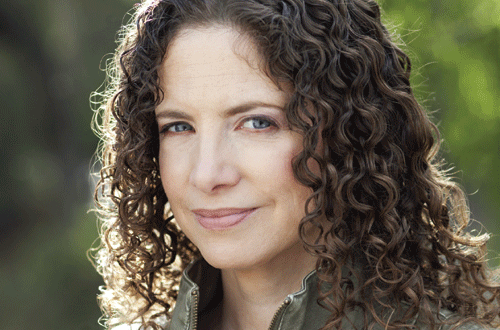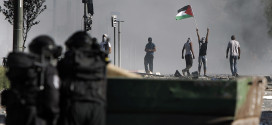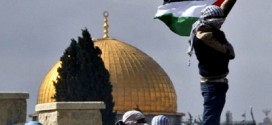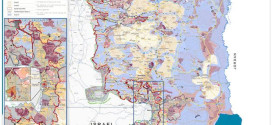
Karima Bennoune (image by Florence Low)
Karima Bennoune: ‘‘People deserve much more than a choice between multiple forms of repression’’
New Humanist talks to the author of "Your Fatwa Does Not Apply Here: Untold Stories from the Fight Against Muslim Fundamentalism"
By Daniel Trilling
Karima Bennoune is author of Your Fatwa Does Not Apply Here: Untold Stories from the Fight Against Muslim Fundamentalism, based on over 300 interviews with people from almost 30 countries ranging from Afghanistan to Mali to Chechnya and beyond. Born in Algeria, and with 20 years’ experience as a human rights activist, she is now a law professor at the UC Davis School of Law
You’ve described your new book as a challenge to both Left and Right. Why is that?
We’ve seen a growing discourse on the Right in the US and the UK that either all Muslims are fundamentalists or there’s something inherently fundamentalist about Islam. This analysis is not only offensive, it’s completely inaccurate.
But unfortunately what we’ve sometimes seen on the Left is a response so politically correct that it can’t actually recognise that we’re talking about fundamentalism at all – or worse, apologises for it. This to me is equally flawed and equally unhelpful and also really abandons the Left on the ground to its fate. What I’m looking for in the book is to create an independent space to talk about these issues with the people who are on the front lines themselves.
What part should your readers play?
The first thing I’m asking people to do is to recognise that the threat [of fundamentalism] is existential, in many ways, to people’s way of life and their own freedom of religion, whether they choose to practise or not. Some choose to practise Islam and they may do it in a variety of ways. Some are atheist or agnostic, but they may be very proud of their Muslim heritage. That is another thing: getting people to recognise the diversity of these people we are all just lumping together under the label “Muslim”.
That phrase – “existential threat” – is most often used by those who believe in the Clash of Civilisations story about Islam and the West
I’ve come to completely reject that as a paradigm. What I found is that there is a clash within civilisations, including Muslim majority societies, between – if I can generalise – democrats and theocrats. Mimouna Hadjan, who is a brilliant organiser among the community of North African heritage in France, said to me: “Muslim fundamentalism is a threat to us.” It’s a threat to our freedom of expression, to our gender equality, to our freedom of religion.
One of the big disappointments that a number of people I interviewed had was that the people they expected to support them – those who ostensibly were promoting the same values of secularism and liberalism and human rights and equality elsewhere – were often not supporting anti-fundamentalists. Either they didn’t speak out because they were worried it would play into racism, or they were in fact sympathetic to the fundamentalists, who were seen as anti-Western and anti-imperialist, which many of the people on the ground just thought was ridiculous.
You began writing the book in 2010. How did the Arab uprisings affect your work?
Some people initally worried that my book wasn’t relevant any more – this was in early 2011 – because Islamism had become irrelevant. We all know now that didn’t happen [see Rachel Shabi’s piece from the magazine]. In Algeria in the late 1980s there was a democratic opening, and the first to move into that were the fundamentalists who had been organising through mosques. They were using the language of religion, even though their project was a political one, and I feared that was going to happen again. I was surprised how fast things deteriorated in Egypt and Tunisia.
Egypt’s Islamist president was deposed by the army in June. Did you see any alternative?
That’s a very difficult question. I do feel that outside, people really didn’t understand the threat that many people inside felt from the rise of the Muslim Brotherhood and what it meant to have an essentially theocratic constitution that you are going to be stuck with for generations to come.
The repression by the Egyptian army is clearly highly problematic, but that seems to be the one piece that gets covered in the Western media. The ongoing violence against Coptic Christians, against women, women who don’t veil, this was not given adequate coverage. To make a judgement you need to look at both of the pieces. The bloodshed that has come after is reprehensible, and something that many activists who supported the initial intervention were against.
Your book presents Muslim fundamentalism as a global phenomenon. Why is that?
The Iranian revolution was an important watershed. There are historical antecedents, but that brought these movements global prominence and also set up the narrative that it was Islam that was challenging Western imperialism.
In some contexts it has to do with revulsion at repressive governments. Sometimes those governments are secular, sometimes they are already quite religious, such as in the Gulf. But Islamists are not an alternative; they are another form of repression, and an even more dangerous one because it’s justified in the name of God. People deserve much more than a choice of multiple forms of repression.
But important things have happened recently. Look at Turkey, with the big protests against the AKP [the governing Islamist party] this summer, or the demonstrations in Tunisia. I do think we are beginning to see a strong push back.
Do you see a distinction between jihadist violence and fundamentalist parties that stand for election?
I see those things as a part of a spectrum. It’s important to understand the connection between this form of terrorism and the fundamentalist ideology that motivates them.
How did your experience of growing up in Algeria influence the book?
I lived there for a number of years as a kid. I left for my education and went back for a fair amount of time in the 1990s. My father, like many intellectuals, started to get death threats and had to move out of his apartment. He was a university professor and had to retire early. He stayed in Algeria and continued to oppose fundamentalism, but I was struck by the lack of support he received from academic and left-wing colleagues outside. He was a tough guy but I think he was very hurt by that. So this book is personal, it’s about going out today to find the people who were doing what my father and all his many colleagues were doing back then. And to try to bring them more support than they got at that time.
published in NewHumanist
 The Arab Democrat The Latest From The Arab World
The Arab Democrat The Latest From The Arab World





